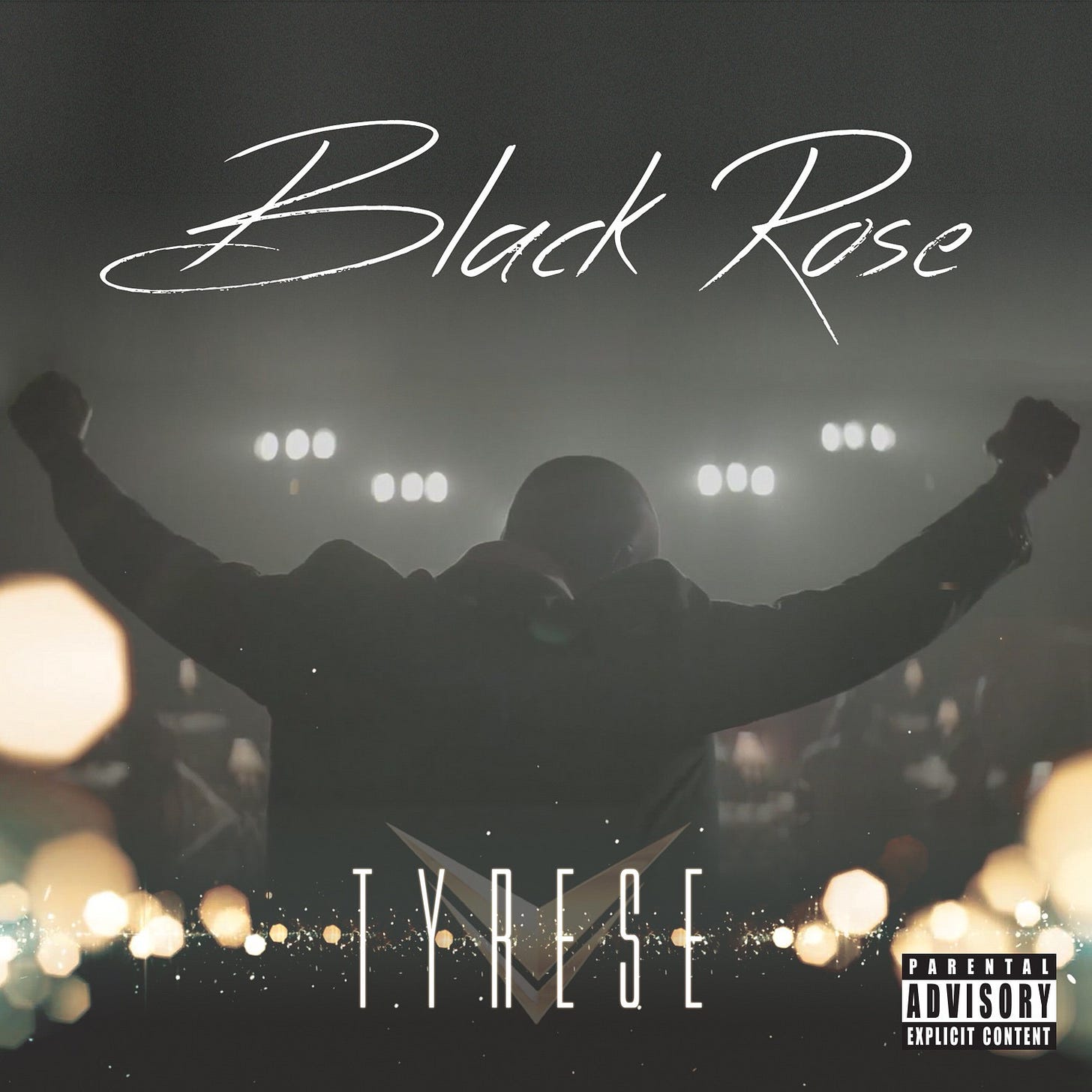Anniversaries: Black Rose by Tyrese
Tyrese doubled down on classic soul values, positioning Black Rose as both a personal swan song and a love letter to traditional R&B.
When Black Rose was released a decade ago, Tyrese—by then also a Hollywood star—was 17 years removed from his debut and fresh off a Top Five chart success with the R&B supergroup TGT. Yet despite Tyrese’s flashy promotional blitz (or antics), which saw him singing on subway trains, re-enacting his 1994 Coca-Cola bus commercial, and even jumping into a pool fully clothed on a dare from Will Smith, the project itself turned out to be a surprisingly modest, ballad-rich collection crafted with longevity in mind. In an era dominated by trendy production fads, Tyrese doubled down on classic soul values, positioning Black Rose as both a personal swan song and a love letter to traditional R&B.
From the outset, Tyrese made it known that this project was special, even hinting it might be his final album (although he returned nine years later with Beautiful Pain). A proud R&B evangelist at heart, he approached Black Rose as a culmination of his musical journey, bringing together many of his long-time collaborators to shape its sound. He called upon trusted studio associates, including producer Brandon “B.A.M.” Alexander, the renowned production duo the Underdogs, and keyboardist Marcus Hodge, alongside songwriters of a younger generation such as Davion Farris, as well as esteemed musicians Warryn Campbell and D.J. Rogers, Jr. This team’s combined vision gave Black Rose a cohesive identity: rich slow-jams and soulful mid-tempos rooted in the ‘90s-meets-‘70s R&B tradition that Tyrese holds dear. The album’s opening track flirts with the singer’s familiar libidinous bravado, but it’s a bit of a red herring; those seductive lines were written with devotion in mind, and the following several songs unveil far more vulnerability and heart than the typical contemporary R&B set. In fact, by the time the record unfolds past its intro, Tyrese is firmly in his sentimental wheelhouse, forsaking club jams for confessional bedroom ballads and repentant love songs intended to age like fine wine.
The emotional centerpiece of Black Rose is undoubtedly “Shame.” This slow-burning throwback soul ballad finds Tyrese on his knees, pleading for forgiveness with an intensity that ranks among his finest vocal performances. Co-produced by Tyrese and Warryn Campbell, “Shame” deliberately channels the spirit of classic R&B, and it even interpolates Atlantic Starr’s 1980 quiet-storm hit “Send for Me” as a subtle homage. The track’s arrangement is lush and old-school, highlighted by the tasteful guitar licks of Wah Wah Watson (a Motown legend enlisted for the session) and the stirring background vocals of Jennifer Hudson and Mika Lett, which bolster Tyrese’s raw pleas with gospel-worthy depth. It’s a knockout ballad steeped in retro flair yet brimming with personal angst, a song of contrition and emotional honesty that towers over much of his catalog. It’s no surprise “Shame” earned Tyrese two Grammy nominations (for Best Traditional R&B Performance and Best R&B Song), as it so authentically captures the timeless qualities of the genre.
While Black Rose has its share of solo introspection, two duets on the album stand out as joyous celebrations of R&B chemistry. “Don’t Wanna Look Back,” featuring Chrisette Michele, and “The Rest of Our Lives,” a tender collaboration with Brandy, are both first-rate duets that showcase genuine conversational interplay. Rather than each singer simply trading isolated verses, you can feel Tyrese and his partners truly listening and responding to one another, their voices intertwined in dialogue. On “Don’t Wanna Look Back,” Tyrese’s husky pleas mesh with Chrisette’s jazzy soprano as they grapple with past heartache and attempt to move forward together—the song exudes the warmth of two old friends finding reconciliation in harmony. Brandy’s appearance on “The Rest of Our Lives” is especially magical. The track is a gorgeously romantic slow jam (its lyrics suggest wedding vows), and Brandy’s signature velvet harmonies wrap around Tyrese’s leads like a loving embrace. The icing on the cake is a final, quiet moment in the song, where their voices drop to a near-whisper—a tender segment that instantly recalls the ending of Kool & the Gang’s mellow classic, “Whisper Softly.”
Black Rose holds up as a remarkably pure statement of R&B artistry. Tyrese’s evolution into an R&B elder statesman, an outspoken champion of the genre’s roots, is evident throughout the album’s DNA. Here is an artist who came up at the tail end of the New Jack Swing era, tasted pop crossover success with hip–hop–infused jams, but ultimately found his true calling in the emotive, “tough yet graceful” stylings of classic soul. Tyrese doubles down on that identity with unapologetic zeal. Even the album’s rollout was part of his crusade: he vocally challenged radio formats for sidelining traditional R&B, and his passionate grassroots marketing for Black Rose was as much about proving R&B’s commercial viability as it was about selling his own record. All the antics and advocacy paid off as the album miraculously debuted at No. 1 on the Billboard 200, a career first for Tyrese, affirming that authentic R&B still had an audience. More importantly, the music itself delivered on his promises.


